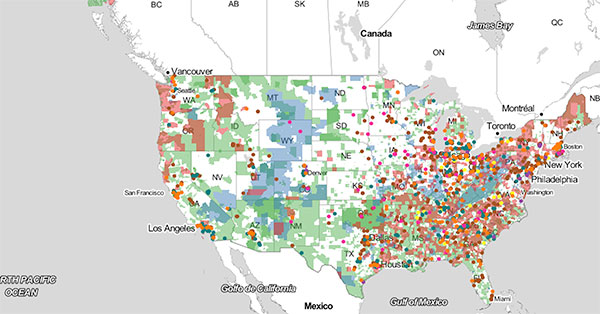BlueGreen Alliance data visualization identifies hard-hit areas of the country that stand to benefit from federal manufacturing investments.
WASHINGTON, D.C. – Today the BlueGreen Alliance released a new visualization of hard-hit areas across the United States that stand to benefit from the investments in the Inflation Reduction Act, Bipartisan Infrastructure Law (BIL), and CHIPS and Science Act. The map highlights communities impacted by the decline of domestic industrial manufacturing, the energy transition, and disproportionate environmental, economic, and health burdens.

“This historic wave of federal funding offers a hard-fought opportunity by investing in communities who’ve borne the brunt of the status quo to help redress longstanding economic, racial, and environmental injustices,” said BlueGreen Alliance Vice President of Manufacturing and Industrial Policy Ben Beachy. “With strong equity and labor standards, these investments can translate into higher-paying jobs, cleaner air, improved health, and stronger local economies for communities that have endured decades of divestment.”
The map shows three types of hard-hit communities:
The map overlays these hard-hit-communities with all known U.S. manufacturing facilities making components for the growing solar, wind, battery, efficient buildings, and electric grid sectors. The overlap reveals the opportunity to use new federal investments in clean manufacturing to help reverse the history of chronic underinvestment that these communities have endured. To access the full map and for more background on the data behind the tool, visit here.
“The agents of our economic transformation should be the communities that have been excluded by racist practices like redlining; hollowed out by the loss of manufacturing jobs under unfair trade deals; impacted by energy transition; and saddled with health burdens through environmental injustice. If hard-hit communities are equipped to steer the investments to meet on-the-ground needs, we have a unique chance to chart a path toward a more equitable economy,” said Beachy.
Scott Ellyson, CEO of East West Manufacturing, brings decades of global manufacturing and supply chain leadership to the conversation. In this episode, he shares practical insights on scaling operations, navigating complexity, and building resilient manufacturing networks in an increasingly connected world.